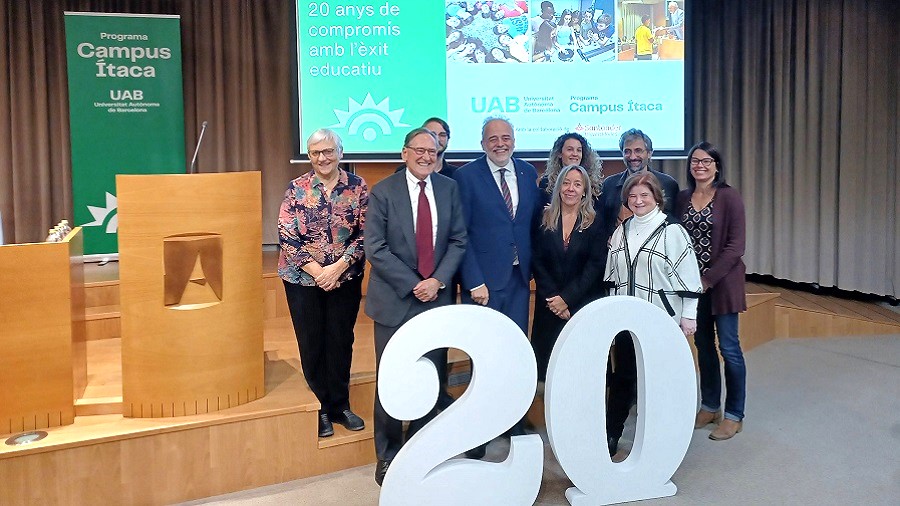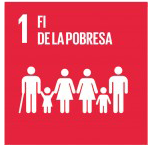The UAB celebrates 20 years of combating school abandonment thanks to Campus Ítaca
On 22 November, the UAB held an institutional event to commemorate the 20th edition of Campus Ítaca, a socio-educational programme organised by the UAB Fundació Autònoma Solidària and funded by the Santander Universidades programme that aims to encourage secondary school students to continue studying at higher education levels. According to a study conducted by ATLAS, research group at the UAB focusing on critical educational intersections, one-third of students in their second to last year of compulsory school studies participating in Campus Ítaca end up enrolling in a university degree at the UAB. In another event held on the same day, students from the past four promotions and recipients of one of the Beques Salari Ítaca (UAB-Santander) study grants, were also presented with a diploma.

According to the ATLAS report, which was presented by Angelina Sánchez, lecturer in the Department of Applied Paedagogy, almost 6,800 people from 33 different municipalities have participated in the Campus Ítaca throughout its twenty editions. Seventy-three percent of them come from unstable socioeconomic situations and 90% have no adult referents with university studies in their daily environment. Among other data, the report also explains that 98% of participants state, at the end of their stay at the Campus Ítaca, that they want to continue their academic training; 17% also state that their idea of what they want to do has changed after their stay. Almost 99% of participants finish secondary school and the vast majority of them go on to upper secondary school and, to a lesser extent, to higher education.
In the institutional speeches given at the event, UAB Rector Javier Lafuente referred to the data of the ATLAS' evaluation report to "reaffirm the positive impact of the Campus Ítaca to motivate and stimulate young people to continue their studies", as well as "make them travel in time and give them the opportunity to be, for a few days, a part of our university community". UAB Secretary General Esther Zapater assured that this project is "an important part of the umbilical cord that unites the UAB with its surroundings". And the president of Santander Universities, Matías Rodríguez Inciarte, highlighted the importance of public-private collaborations and of giving support to programmes such as the Beques Salari Ítaca Santander-UAB grants and the Campus Ítaca because they show the value of having "access to higher education, the culture of effort and the role of the university in economic, cultural and social progress".
The event to celebrate twenty editions of the Campus Ítaca also included a round table entitled "Opportunities for Educational Success" in which different people linked to the project over the years took part: Neus Sanmartí, director of the UAB Institute of Education Sciences between 2002-2008, the entity behind the creation of the Campus Ítaca in 2004; Anna Marbà, lecturer at the Faculty of Education who participated in the expedition to Scotland to study the University of Strathclyde project and collaborator of the Campus Ítaca since its first edition; Maria Antònia Parera, a teacher at the Institut Can Jofresa in Terrassa, who has participated in the project since its inception and has helped 27 of her students obtain study grants; and Sergio Corral, former participant of Campus Ítaca and fourth-year student of the Bachelor's Degree in Translation and Interpreting at the UAB, who is pursuing his university career thanks to a study grant and which has allowed him to do such things as spend an academic stay in Japan. For his part, Rafael Merino, lecturer in the Department of Sociology and moderator of the debate, said that the Campus Ítaca has the characteristic "of bringing the UAB closer to environments that are far away" despite their geographical proximity.
Video: 20 years of Campus Ítaca
You can consult the Ítaca Campus impact evaluation report here.
The UAB, with Sustainable Development Goals
Reduced inequalities
 No poverty
No povertyQuality education